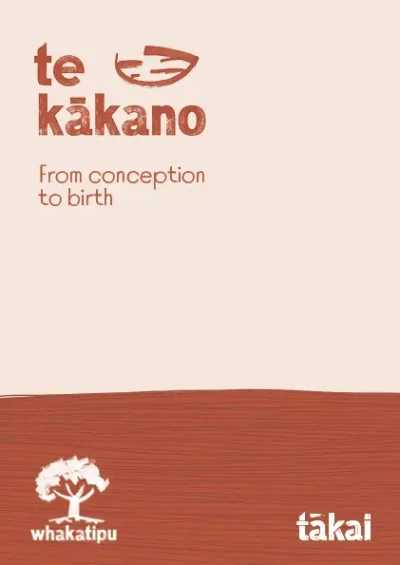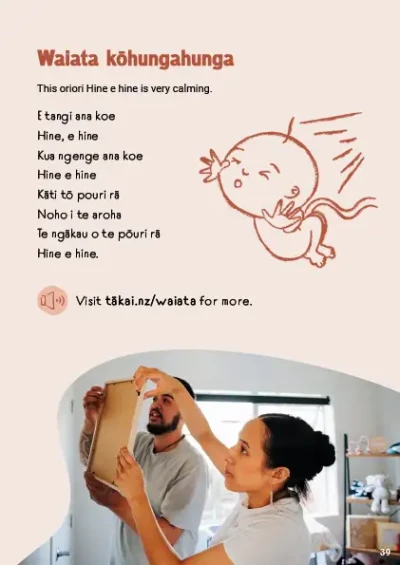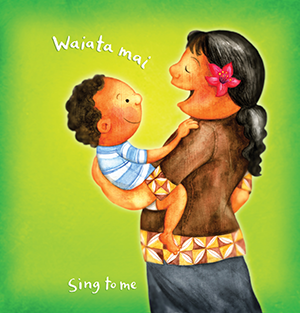
Oriori
Oriori are songs or chants that tell stories. They may mark important milestones in life such as pregnancy and birth, or be sung to soothe pēpi to sleep.
Tūpuna Parenting: Waiata oriori
Tūpuna Parenting: Waiata Oriori (transcript)
Hana Tuwhare:
Kia ora e te pēpi.
Liz Harte:
So waiata oriori were songs or chants or poems that were written for pēpi to welcome them to te ao, to the world. They were written by parents or grandparents who were really excited of course about the new pēpi that was coming. And they would contain whakapapa and histories and hopes and dreams from the whānau for pēpi.
Hana Tuwhare:
Beautiful, and our tūpuna must have known that pēpi was learning language while māmā was still hapū, while pēpi was still in kōpū; as pēpi starts listening and learning language in the last few months of pregnancy.
Liz Harte:
Āe, the waiata oriori didn’t use simple language either, it was quite complex and really rich and poetic, and so beautiful.
Hana Tuwhare:
Our tūpuna knew that oriori was a way to laying down the foundations for language, for whakapapa and identity.
Liz Harte:
Āe, exactly right. They knew that they were inextricably linked.
Hana Tuwhare:
And can anybody write an oriori? Can I write one?
Liz Harte:
Āe, absolutely. It was parents and grandparents, but today anyone can write one for a pēpi that is special to them.
Hana Tuwhare:
And even though I’m on my reo journey, and I’m still learning the reo, I can just use what I’ve got so far?
Liz Harte:
Āe, and you can pick a tune that you know, you don’t have to write a song from scratch. My first waiata oriori I picked the Silent Night tune and it was entirely in English. Just say what you feel, say what feels right.
Hana Tuwhare:
I reckon I can do that for my nephews and nieces.
Liz Harte: (sings)
Oh my pēpi, my curious pēpi. At first you’re small and need us all. Your tūpuna send their love. Through us they send their strength and love.
Traditional use of oriori
The late Amster Reedy (Ngāti Porou) researched how oriori were traditionally used. He said that oriori can be a type of karakia . They were used to bring a child into the world and to lull children to sleep.
Singing or chanting oriori to welcome pēpi into the ‘world of light’ is one of the tikanga Māori practices whānau can use during the birth of their pēpi.
In traditional Māori culture:
- Oriori reinforced the purpose and spiritual nature of mokopuna, and their links to the atua and their spiritual helpers.
- Motivational and inspirational oriori talked to mokopuna about desired behaviours. They were encouraging and uplifting, and were used as a socialisation tool.
Through repetition, oriori reinforced messages about desired qualities in mokopuna, and sometimes acknowledged what their needs might be.
Soothing baby with oriori
Studies have shown that newborns recognise songs that were sung to them during pregnancy.
Invite whānau to look the Whakatipu booklet Te Kākano, kaitiaki pēpi section on oriori with you. This reminds us that traditionally oriori told stories to children about their ancestors. But, any personal story can be turned into a special song or oriori for pēpi.
Talk with whānau about whether they’ve considered singing to their unborn child.
Conversation ideas
Creating whānau oriori
Whānau can write their own songs about whānau, ancestors and the kinds of values they want pēpi to have. They could write their own oriori for pēpi based on what’s important to them. Each parent might have different ideas on what they’d include. Recognising this and valuing each other’s contribution strengthens relationships.
Nā tō rourou, nā tōku rourou, ka ora ai te iwi.
An oriori or chant doesn’t have to be too elaborate – it can be short with repeated phrases. It might help to write some ideas down to get things started.
Ideas for writing oriori
Here are some prompts to help whānau explore what to include in an oriori for their pēpi.
Helpful resources for whānau
-
Tātai Kōrero – waiata<
Tātai Kōrero – waiataMāori whānau talk about the benefits waiata can bring to the lives of mokopuna by promoting all areas of their development and wellbeing.
-
Tātai Kōrero – waiata (te reo Māori)<
Tātai Kōrero – waiata (te reo Māori)Māori whānau talk about the benefits waiata can bring to the lives of mokopuna by promoting all areas of their development and wellbeing.
 pdf 12 MB
pdf 12 MB













